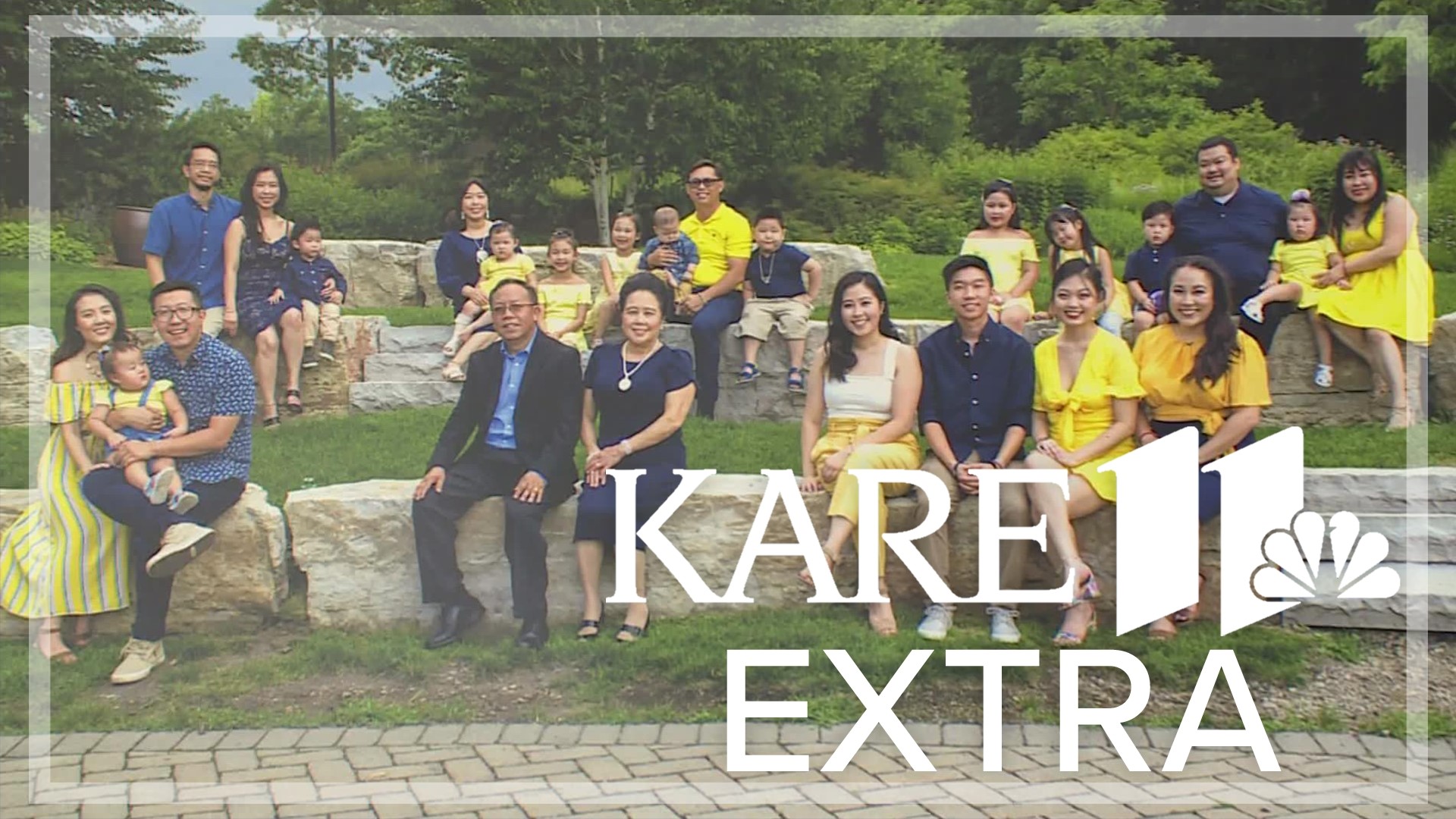MAPLEWOOD, Minn. — Clunky VHS tapes may have become obsolete, but not for the Yang family, who still hangs on to one in particular where we meet them in Maplewood.
"Every now and then we come across this video and we'll watch it again," Khou Yang, 31, said.
It houses history — their history.
The year was 1994 and a KARE 11 crew was in the Phanat Nikhom Refugee Camp in Thailand. Neng Shao Yang and his wife Chaw Lor were preparing their family for their biggest move ever: Minnesota.
KARE 11 was there when they arrived at Minneapolis-Saint Paul International Airport to a warm welcome, but a cold Minnesota winter. We were also there when the family took their first trip to a department store to buy heavy coats, and when Neng Shao searched for jobs.
A station crew caught up to them again years later, when Neng Shao had two jobs as a butcher and teacher to refugees like him. He helped take them to appointments before walking them through their naturalization ceremonies.
Every time KARE 11 met with the family, Neng Shao openly talked about the challenges.
"When our accent, it's hard for them to understand, too," Neng Shao said driving to an appointment for his clients.
But he was also dreaming of the day he'd become a U.S. citizen, and for the future of his eight children in this new land.
"We have lots of kids," he said. "They will go to college and we want to earn money for them to prepare for them to go to college, and we don't want our kids just stay like us," Neng Shao told a crew in the '90s.
Now, 28 years later, where is the dream?
Before we find out, Neng Shao wants to give thanks in Hmong, custom in the culture ahead of special circumstances or celebrations. Today, he said it is our visit that makes this day special.
We learn later, this is a time of celebration for his family.
"In America, we weren’t financially wealthy, but we were wealthy of mind," Neng Shao said in Hmong. "So if you don’t commit to an education, then you don’t have knowledge," he said. "Education equates to knowledge."
Neng Shao's is now 64 years old. His thirst for knowledge has driven him to explore many careers since KARE 11 last spoke with him. After he left the butcher shop and organization he worked for, he owned a liquor store. Then he became a landlord for couple of properties. Most recently, you might have seen him at a Hmong senior center he operated for about seven years, giving seniors a safe place to meet others and learn something, too. There are many photos where Neng Shao is showing others there how to stretch or exercise. Recently, the center shut down because of the pandemic.
How about his children? They were all small children when KARE 11 first met them. They have almost all done what Neng Shao had hoped, including Khou, who we had seen many times in those videos.
"Oh gosh, a whole life story has happened," Khou said. "Currently, I'm a third-year law student at Mitchell Hamline School of Law," she said. "I'll be graduating in May and I'll be taking the bar in July." Khou did her undergrad at the University of Minnesota.
Khou remembers those KARE 11 cameras and pulling out their tape with the recordings every once in a while. She means it when she says she saw her parents journey.
"You know, it becomes part of our family history to fully see the transition from living in the camps to being in America — how far we've come, how different it is," she said. "I've seen my parents fight for what they want and fight so hard to succeed that I'm able to say that's what shaped me to become as resilient as I am as an individual," Khou said.
The VHS tapes have become a capsule.
"It's a nice little time machine for me," Khou's big brother, Kou, said. Kou had become a teacher before re-thinking priorities during the pandemic and making a switch into real estate, a career that allowed him more flexibility and time with his family.
Kou is watching the part of the old story where he's seen trying on a winter coat as a boy.
"I just remember just how big my coat was!" Kou said.
Sitting beside him, is the next generation of Yangs.
"That's daddy right there!" Kou's daughter Fiona, 3, said.
They're ready to view the gift of an American story that lives inside a plastic rectangle.
Minnesota boasts one of the largest and robust Hmong populations in the country. Many came in the late '70s after the fall of Vietnam. But some stayed in refugee camps in Thailand for many years before those camps were closed, like the Yangs. That's when many made the decision to come to America.
Watch more local news:
Watch the latest local news from the Twin Cities in our YouTube playlist:

